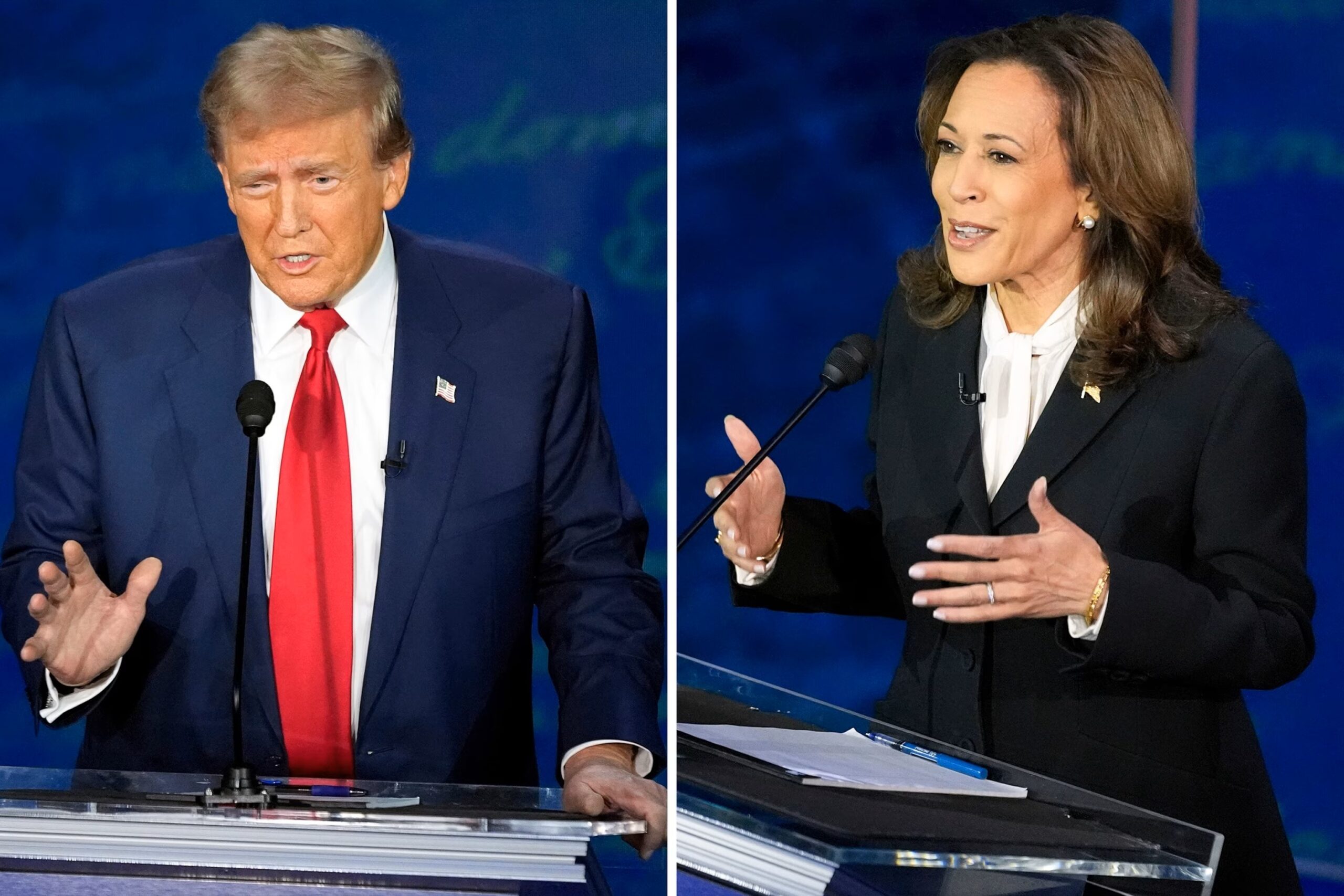New York — The first debate between Vice President Kamala Harris and former President Donald Trump captured the attention of 67.1 million viewers across 17 major television networks, making it one of the most-watched political events of the year. The massive audience significantly surpassed the 51 million who watched Trump’s previous debate with President Joe Biden in June, reflecting the heightened stakes in the 2024 presidential race.
The debate, hosted by ABC and held in Philadelphia, was a 90-minute confrontation that touched on some of the nation’s most contentious issues, including abortion rights, immigration reform, and the outcome of the 2020 presidential election. This was the first time Harris and Trump had faced each other directly, and the public’s curiosity about how Harris, a rising star in the Democratic Party, would fare against the veteran political heavyweight Trump, drove significant interest in the event.
The debate represented a major milestone in the 2024 race, not only due to the large television audience but also because of the context in which it took place. After the June debate between Biden and Trump, which saw Biden underperform and eventually drop out of the race, Harris took the mantle as the Democratic nominee. This debate was a crucial opportunity for her to demonstrate her leadership and to counter Trump’s combative style, which has been a hallmark of his campaign approach.
Although the 67 million viewers represent a substantial number, it still falls short of the record-breaking debates of previous election cycles. In 2020, the first debate between Trump and Biden drew over 73 million viewers, while the 2016 Trump-Clinton debate remains the most-watched in history, with 84 million tuning in. However, these figures do not take into account the millions who now watch debates through online streaming services and social media platforms, which have dramatically changed how audiences consume live political events.
ABC dominated the ratings for the night, pulling in over 19 million viewers, followed by NBC with more than 10 million and Fox News with over 9 million. Additionally, more than 7 million viewers watched the debate via Disney-owned streaming platforms, making it the most-watched event across the company’s digital platforms in more than 16 years. This shift highlights the growing importance of streaming in political broadcasts, as many viewers opt for the convenience of digital viewing rather than traditional television.
The debate also marked a departure from previous election cycles, as the candidates chose to participate in a debate organized directly by a television network rather than by the Commission on Presidential Debates, which has overseen such events for decades. This change in format allowed the networks more control over the debate’s structure, but it also sparked controversy, particularly regarding the role of the moderators.
Moderators David Muir and Linsey Davis fact-checked Trump in real-time during the debate, correcting him on at least three occasions. This unprecedented move drew sharp criticism from Trump and his allies, who accused the network of bias. Trump, who was found to have made over 30 false claims during the debate, lashed out at ABC, calling it “the most dishonest news organization in America,” and suggested that Disney’s FCC broadcast licenses should be revoked as a result.
Compounding the tension surrounding the debate was an ongoing conflict between Disney and DirecTV. In the days leading up to the debate, Disney pulled ABC, ESPN, and other networks from DirecTV’s channel lineup due to a protracted carriage dispute. In a bid to ensure that millions of viewers wouldn’t be cut off from the debate, Disney offered a free feed of the broadcast to DirecTV for a three-hour window, but the offer was declined, leaving DirecTV subscribers to find other ways to watch. As the 2024 election draws nearer, the Harris-Trump debate has proven to be a crucial turning point in the campaign, not only for its substantive discussions but also for the broader implications it holds for media, politics, and public engagement. With such high stakes, the debate has sparked a nationwide conversation about the future of the country and how each candidate plans to lead it.






